Chess - oh yeah, that game with the little horseheads...
This is very cool! One of the few words I recognized in the audio was "ekwhos" (horse/horses; L: equus; OHG: hros) -- but it is not spelled in the English transcription ("akvams," "akvasas, "a vavakat") anything like it sounds in the audio or as I've seen it traditionally transcribed in P-I-E.
Side note: From Wikipedia regarding Sanskrit word for "horse:"
Aśvaḥ (अश्व) [Ashvah] is the Sanskrit word for a horse, one of the significant animals finding references in the Vedas as well as later Hindu scriptures. The corresponding Avestan term is aspa. The word is cognate to Latin equus, Greek ίππος (hippos), Germanic *ehwaz and Baltic *ašvā all from PIE *hek'wos.
I found the English transcription (below) undecipherable as I tried to link the words I was reading on the page to what I was hearing on the audio. Fortunately, the article does provide a pronunciation guide at the end that appears in the format with which I am more familiar, so I was able to match up some of the words I was hearing in the audio more easily in the English transliteration of the P-I-E.
The audio clip is - well, I just find it utterly intriguing. See what you think:
At Archaeology Magazine online
Telling Tales in Proto-Indo-European
By ERIC A. POWELL
By the 19th century, linguists knew that all modern
Indo-European languages descended from a single tongue. Called
Proto-Indo-European, or PIE, it was spoken by a people who lived from roughly
4500 to 2500 B.C., and left no written texts. The question became, what did PIE
sound like? In 1868, German linguist August Schleicher used reconstructed
Proto-Indo-European vocabulary to create a fable in order to hear some
approximation of PIE. Called “The Sheep and the Horses,” and also known today as
Schleicher’s Fable, the short parable tells the story of a shorn sheep who
encounters a group of unpleasant horses. As linguists have continued to discover
more about PIE, this sonic experiment continues and the fable is periodically
updated to reflect the most current understanding of how this extinct language
would have sounded when it was spoken some six thousand years ago. Since there
is considerable disagreement among scholars about PIE, no one version can be
considered definitive. Here, University of Kentucky linguist Andrew Byrd recites
his version of the fable using pronunciation informed by the latest insights
into reconstructed PIE.
Schleicher originally rendered the fable like this:
Avis akvāsas ka
Avis, jasmin varnā na ā ast, dadarka akvams, tam, vāgham garum vaghantam,
tam, bhāram magham, tam, manum āku bharantam. Avis akvabhjams ā vavakat: kard
aghnutai mai vidanti manum akvams agantam. Akvāsas ā vavakant: krudhi avai, kard
aghnutai vividvant-svas: manus patis varnām avisāms karnauti svabhjam gharmam
vastram avibhjams ka varnā na asti. Tat kukruvants avis agram ā bhugat.
Here is the fable in English translation:
The Sheep and the Horses
A sheep that had no wool saw horses, one of them pulling a heavy wagon, one
carrying a big load, and one carrying a man quickly. The sheep said to the
horses: "My heart pains me, seeing a man driving horses." The horses said:
"Listen, sheep, our hearts pain us when we see this: a man, the master, makes
the wool of the sheep into a warm garment for himself. And the sheep has no
wool." Having heard this, the sheep fled into the plain.
And here is the modern reconstruction recited by Andrew Byrd. It is based on
recent work done by linguist H. Craig Melchert, and incorporates a number of
sounds unknown at the time Schleicher first created the fable:
H2óu̯is h1éḱu̯ōs-kwe
h2áu̯ei̯ h1i̯osméi̯
h2u̯l̥h1náh2 né h1ést, só
h1éḱu̯oms derḱt. só gwr̥hxúm u̯óǵhom
u̯eǵhed; só méǵh2m̥ bhórom; só
dhǵhémonm̥ h2ṓḱu bhered.
h2óu̯is h1ékwoi̯bhi̯os u̯eu̯ked:
“dhǵhémonm̥ spéḱi̯oh2
h1éḱu̯oms-kwe h2áǵeti, ḱḗr moi̯
aghnutor”. h1éḱu̯ōs tu u̯eu̯kond: “ḱludhí,
h2ou̯ei̯! tód spéḱi̯omes, n̥sméi̯ aghnutór ḱḗr:
dhǵhémō, pótis, sē h2áu̯i̯es
h2u̯l̥h1náh2 gwhérmom u̯éstrom
u̯ept, h2áu̯ibhi̯os tu
h2u̯l̥h1náh2 né h1esti. tód
ḱeḱluu̯ṓs h2óu̯is h2aǵróm bhuged.
Subscribe to:
Post Comments (Atom)

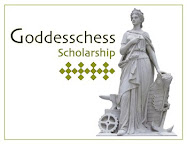



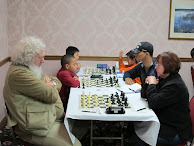



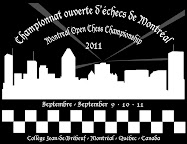










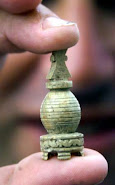











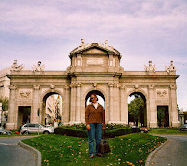


No comments:
Post a Comment